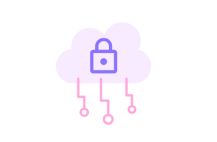
In a survey carried out by BVA for the USI conference (operated by Octo Technology) between April and July 2020 among a hundred business decision-makers, USI sought to understand what are the reports, expectations, and hopes of business leaders from all sizes (large groups, start-ups, and ETIs) in relation to new technologies: their influences, the possible risks they represent and the opportunities they offer.
The first element highlighted by this study is the importance taken by technology in decision-making. Indeed, an overwhelming majority of respondents (94%) are convinced that a better technological culture makes it possible to make more informed decisions. If 59% of the decision-makers questioned think that technology must be developed to improve the future, 61% of respondents warn by recalling that it is necessary to limit the impact of technologies and to favor “ Low Tech” ; a point that reflects a desire to reason the development of technology in companies while accepting the use of these tools. Technological challenges in times of uncertainty While 4 out of 5 decision-makers feel confident in their company’s ability to keep pace with technological developments, technological transformation remains a challenge. Among the three main issues identified by managers, we find capitalizing on data to create more value (95%), the need to strengthen the security of information systems (91%), and the development of remote working ( 87%). These three main issues are considered priorities for companies because of the benefits they can generate: productivity gains (50%) first, but also an improvement in the customer experience (45%) and response more focused on customer needs (41%). However, the decision-makers interviewed also believe that these transformations can be a source of risk for the company. Thus, 54% fear too much investment in change management, and 42% mention difficulty in assessing the return on investment.
Finally, and this is a crucial point, the corporate culture remains a major obstacle for 41% of respondents. Indeed, nearly 4/5 of managers believe that effective integration of technological developments can only go through an in-depth modification of the organization of the company.
Well-informed leaders Among the technologies perceived as vectors of transformation, the leaders surveyed cited three main ones: artificial intelligence (77%), the Internet of Things (47%), and Cloud Computing (41%). As for their degree of knowledge of technological developments, 82% of decision-makers consider that they are sufficiently informed of technological developments that could have an impact on their business, this percentage rises to 86% in startups and 85% in large groups against 72% in ETIs. For information, word of mouth is mostly favored (meetings between peers are cited by 66% of respondents), ahead of consulting specialty sites and blogs (52%) and professional events (51%). Despite the use cases that are multiplying and growth barely slowed by the current crisis, the IoT risks remain the weak link in the security of IS and corporate data for a long time. Indeed, the economic model and the value chain of this industry do not make it possible to secure them to the point of giving confidence to the user companies. Given the costs of developing internal security mechanisms and the average price of an IoT, ranging from a few cents for sensors to a few tens of euros, manufacturers cannot invest in security without risking a price explosion. cost of their products. It’s just not viable. Even assuming that the manufacturer makes an effort to protect its product from attacks, it cannot sustain this effort over time. This means that the security of an IoT can quickly become obsolete due to a lack of support and updates from the manufacturer. It is therefore up to companies to find countermeasures and organize countermeasures to protect their IoT systems. In a recent study, ABI Research estimates that by 2026 IoT connections will exceed 23 billion in all major IoT markets. Almost all of these connections will face relentless and ever-evolving cyber threats, forcing implementers and IoT vendors to adopt new security options to protect managed fleets and connected assets. A boon for IoT security vendors This state of affairs is whetting the appetites of many IoT security vendors, ABI Research estimates. They are taking advantage of the recent surge in IoT investment to increase their market presence and offer security-first IoT authentication and management services, backed by a host of flexible pricing models. Among the market leaders and innovative companies offering IoT security services and operating in different areas of the IoT value chain, ABI Research cites Intel, Microsoft Azure, Amazon Web Services, EntrustDatacard, Rambus, Data I/O, and Globalsign.

Very interesting information!Perfect just what I was
looking for!Expand blog